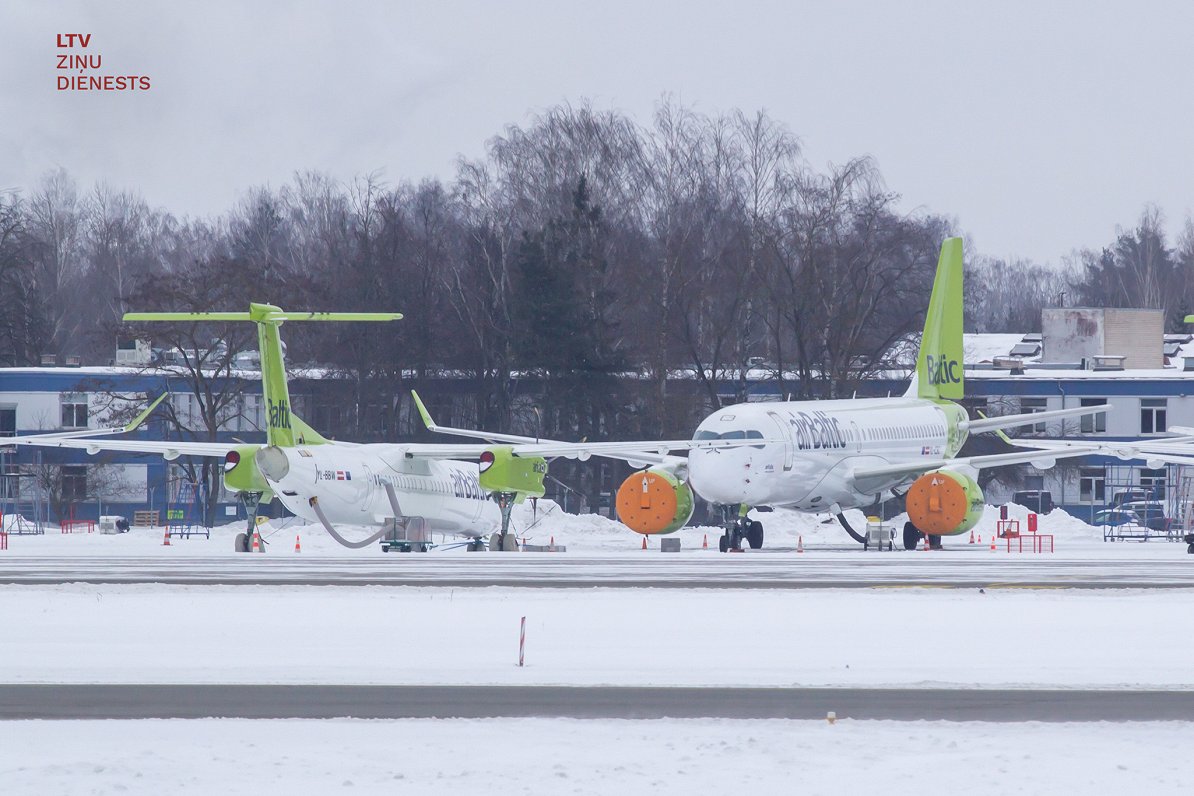The airline has yet to say whether it will ask for another portion of the money. Five different scenarios have been developed. The worst of them involves a lot of damage.
In 2019 airBaltic transported 5 million passengers, in 2020 - only 1.3 million. Last week, the head of airBaltic, Martins Gauss, published the opinion that the number of travelers will increase with vaccination. However, he also indicated that European airlines are expected to have a few difficult months and that asking for state support for the aviation sector is unavoidable.
As a result of the outbreak of coronavirus, the government decided in March last year not to reimburse airBaltic for an earlier loan of EUR 36 million, but to convert that money into shares. However, the European Commission did not agree with this. In the summer, another strengthening plan for airBaltic was agreed with the European Commission – a €250 million investment in airBaltic's capital.
In the year of the Covid-19 crisis, it is clear that the State money was given out more generously. However, the current aid to airBaltic stands out against the overall background. The investment of €250 million is as much as, for example, the tax extension for all Latvian companies together. Nearly twice as much as was paid in downtime benefits and wage subsidies throughout the past year.
The company's CEO, Gauss, told De Facto that airBaltic has not yet asked for additional funds. Whether it will happen depends on vaccination rates in Europe.
“We have planned five different scenarios this year, and in two of these scenarios we would still have money at the end of the year. But in a scenario where there are no changes to the current situation, we - like other airlines already have - will ask for help. But we are not currently targeting the Latvian State for additional money, we will review the situation with vaccination in the spring,” explained Gauss.
airBaltic is now forecasting that there will be more flights in March and April and bookings will normalize in September.
Asked to mention more specific amounts of money that taxpayers should take into account, Gauss replied that airBaltic currently costs €3.5 million a week. As soon as it is possible to fly, revenues will also be shown in return.
“If you can tell me when all flights are possible, then I can tell you how much money airBaltic needs,” said the president of airBaltic.
“The worst case scenario, I suppose, is that the situation is not improving for a whole year. I can tell a number if we don't fly another year. If we don't fly until February 2022, then the maximum losses would be €182 million. This is a scenario that we also look at, but of course our assumption is substantially better,” Gauss said.
Transport Minister Tālis Linkaits (New Conservative Party) noted that the government would be prepared to help airBaltic, but there is great uncertainty whether the money will be needed and how much.
“I think that this is a probability because it is clear that if the situation does not improve and we do not continue flights in Europe, it is clear that the whole aviation sector in Europe will have to be supported,” Linkaits said.
The airline explains that the money provided by the government in the summer helped to cover airBaltic's flight costs, leasing and maintenance. More than €60 million was repaid by the company to passengers on canceled flights.
airBaltic was also saving by dismissing 40% of its employees, a total of 700. In an interview last March, Gauss promised to take everyone back in the year, but now admits that they can't take back all the people who have been fired.
Pilots have a lower salary, but they are offered to become shareholders, loans are issued, and debt is eliminated at the end of the year, paying dividends.
At the beginning of the Covid-19 crisis, airBaltic President and Chief Executive Gauss announced that he was waiving his remuneration until scheduled flights could be resumed. Gauss annual revenues from airBaltic have exceeded one million in recent years.
As De Facto found out, Gauss worked for only one month without remuneration.
In May, when airBaltic resumed scheduled flights, Gauss's remuneration was restored, but with a reduction of 20%, as was the case with other leading airBaltic employees. Meanwhile, in October, the entire team renewed its salary at 100% because the airline had met certain business goals.
Gauss seems to be a little annoyed about the talk of big state funding for airBaltic. In his opinion, the society does not fully understand the contribution of airBaltic to the economy during the crisis year, transporting not only passengers but also millions of letters and packages.
“The discussions are only about how much money we received, but on the other hand airBaltic's revenues are above €500 million in good years. And we go forward to be the largest company in the country according to turnover. As airBaltic, we are a global brand. We are the only brand really known outside the country. And airBaltic's revenues will exceed a billion in the future, thanks only to all the planes we have ordered,” Gauss said.
It should be noted that the company will have to recover very quickly so that, in five to seven years, as agreed with the European Commission, it will return the money invested by the State.






























